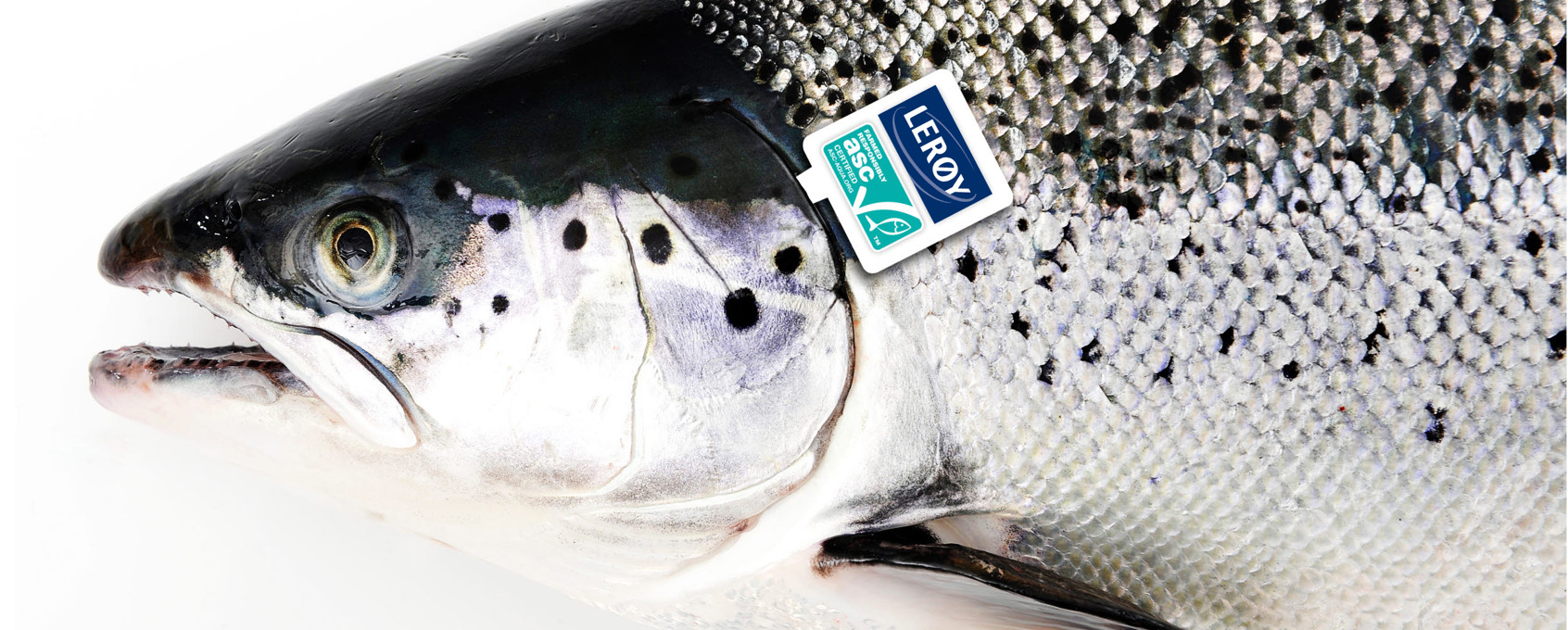Norwegian ASC salmon (also called Atlantic salmon) is cultivated in cages in the open waters in the fjords of Norway and therefore available throughout the year. Here, the salmon grows within 12-18 months into a 3 to 6 kilos fish, on average. Sometimes they even get bigger. To protect the population of wild salmon, most Atlantic salmon now comes from farms.
Salmon is one of the best-known kinds of fish and popular because of its healthy Omega-3 fatty acids, minerals and vitamins. It’s good for your heart, blood vessels, eyes, hair, skin and muscles, and it also lowers your cholesterol and helps against dementia.
ASC is short for Aquaculture Stewardship Council, a certification similar to the MSC certification, however, the ASC is specifically intended for cultivated fish.
Goal of the ASC is to guarantee the sustainability of the product with a minimal impact on the environment. The mission of the ASC is to promote awareness and create value in the entire chain of aqua culture, sustainability of the environment and social and public responsibility.
The ASC criteria are set up by fish farmers in collaboration with scientists, the WWF, and the Initiatief Duurzame Handel (Sustainable Trade Initiative). It is evaluated as top certification because of monitoring, transparency and sustainability.
The cultivation process of the ASC salmon thus occurs according to a higher standard and supervision. Rules include less use of antibiotics, more sustainable fish food and better working conditions for staff.
For more information: www.asc-aqua.org

